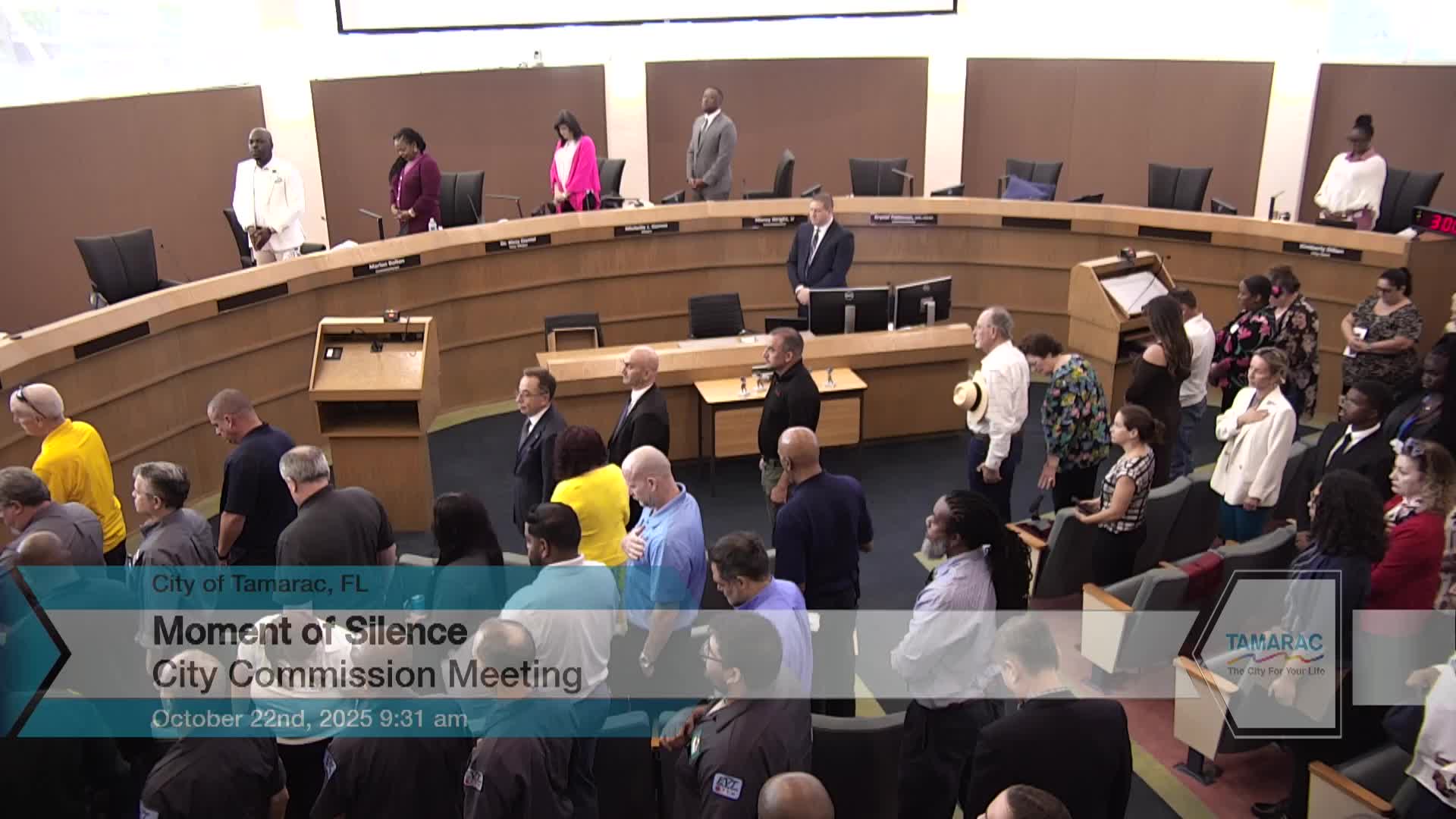Tamarac officials hear federal, USPS paths for one-city ZIP code
Get AI-powered insights, summaries, and transcripts
Subscribe
Summary
City officials heard a Washington consultant outline USPS rules, a 10-year restriction and a parallel path through Congress as Tamarac continues a years‑long push for a single municipal ZIP code; commissioners and residents raised concerns about costs, identity and whether consolidation would meaningfully change local data used by businesses.
A federal lobbying consultant told the Tamarac City Commission that the city can pursue a single municipal ZIP code through the U.S. Postal Service boundary review request process but should expect a low approval rate, and that a legislative “fix” in Congress is an alternative route.
Perry Adair, a government relations attorney with Becker & Poliakoff, told the commission the USPS grants about 10% of ZIP‑code change requests and that localities can appeal a denial to a Washington office within 45 days. He said USPS emphasizes delivery efficiency, hub distance, route duplication and customer satisfaction when it evaluates requests, and that approved changes include a one‑year transition period for affected customers.
“About 10% of applications on an annual basis … 10% are approved, 90% are roughly denied,” Adair said. He urged the city to gather strong evidence of local support and a clear plan that shows benefits to residents and to USPS operations before submitting a request.
Why it matters: commissioners said a single Tamarac ZIP code could affect business recruitment, grant eligibility, public safety statistics and residents’ sense of municipal identity — but they also questioned whether the change would reduce administrative or fiscal burdens for residents.
Commissioners and residents described examples of mixed addressing that frustrate local marketing and service delivery. Commissioner Moray Wright, citing commercial site‑selection practices, said restaurant chains and retail developers “look at ZIP codes” to gauge demographics and disposable income. Mayor Michelle J. Gomez and other commissioners said they have heard residents and businesses complain that mail and published addresses sometimes list Fort Lauderdale, Sunrise or other nearby cities instead of Tamarac.
City manager Leventsa Zulu said part of the motivation is municipal identity: “When you’re ordering things … a lot of the automated systems … automatically pick up Fort Lauderdale,” Zulu said. He added that pursuing a single ZIP code has been a recurring item in strategic planning discussions.
How the USPS process works: Adair outlined the boundary review request route. A locality submits a written request to its local USPS district manager (requests are limited to once every 10 years); USPS surveys affected customers as part of its review; a denial can be appealed to USPS in Washington within 45 days; if approved USPS mails customers and provides a one‑year transition window. Adair said the process typically takes six months to a year but varies with complexity.
Congressional alternative: Adair said a second option is asking members of Congress to pass legislation to change ZIP code assignments. He said Rep. Marcos Diaz‑Balart had been leading legislative work on ZIP consolidation that year and that sponsors have tried to include multiple municipal fixes in a single bill. He cautioned that passing standalone ZIP‑code legislation is a lengthy process and urged building bipartisan support from other municipalities seeking fixes.
Commissioner Marlon Bolton and others asked whether the change would impose costs on residents. Adair said USPS does not charge a fee to submit a request, but localities should budget staff time for community outreach and documentation. He said any fiscal impacts to residents—such as reissuing account records—would likely be small and that customers receive notice and a year to update accounts if USPS approves a consolidation.
Local debate: some commissioners emphasized potential economic upside, saying a single Tamarac ZIP could help the city “brand” itself and better capture economic indicators used by developers. Others urged caution: Commissioner Patterson said she saw little evidence yet that the change is necessary and asked for an analysis of potential fiscal impacts on residents and administrative workload to implement a new ZIP code.
Next steps: commissioners heard Adair describe a recommended work plan: craft a precise proposal showing the proposed ZIP‑code boundary, collect letters of community support and petitions, submit a boundary review request to the USPS district manager, appeal a denial if needed, and brief and build support among the city’s congressional delegation in parallel.
Ending: Commissioners agreed to keep studying the matter. The consultant said his firm would work with staff on the package and on briefings with congressional staff if the commission chooses to move forward.
